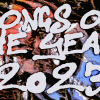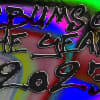To say that no other rapper was, is or will be like Notorious BIG is obvious. But it’s like saying no tree is as beautiful as an oak, or that film is better than digital. Biggie is a legend because he was so versatile, and what made him great was a combination of his many talents, god-given or otherwise. While it’s impossible to claim anyone as the next Big, we can look at the facets of his greatness and see them reflected in a handful of new rappers. Fred the Godson, a large New York street rapper, shares a similar backstory to Big, toiling in a craft that today may no longer be relevant. Danny Brown, Detroit’s son, is a product of his hometown, just as Big forever wore Brooklyn like a badge. Brick Squad Monopoly is Waka Flocka Flame’s Junior MAFIA, an amalgam of differently talented hooligans whose groupthink is more crucial than their individual capabilities. And Angel Haze, a young internet brat, has Biggie’s preternatural skill, but it’s questionable if she’ll harness it. Clearly there will never be another Biggie, but to thrive, hip-hop needs artists like these to keep rapping like there could be.
Danny Brown has controversial hair. It’s this shaved, side-cut thing to which he’s currently adding a blonde patch. On the phone from a barbershop in his home of Detroit, he explains, “It came from the Japanese niggas and shit, that’s why I dyed the back like this. Like the yakuza gang members. I was trying to look like one of them. Them niggas gangster, they cut your head off with a sword for all types of shit.”
With Manic Panic highlights and casual yakuza references, Brown’s style is unabashedly weird, both in rap and appearance, but he doesn’t see it that way. “I’m totally normal. I’m just worldly,” he says. “I’m not trapped in my surroundings.” But growing up, he was mostly not allowed outside by his parents because his neighborhood was too dangerous. Instead, he watched TV, hung out on the porch and listened to whatever his dad—who was a house DJ—threw his way. “My parents did whatever they could to keep us in the house,” he says. “Whatever it was to keep us entertained and from getting in the streets. I had studio equipment and beat machines when I was a little kid.”
At 14, he started working at a buffet restaurant before quickly realizing it was a dead end. “I had a job way before I was old enough to get one,” he says. “Then by the time I was old enough to get one, I started selling drugs. Once I got old enough to get out, I never came back home.” When Brown started performing, he had no following so he played wherever anyone would have him, which was mostly in massive 1200-person capacity warehouses during raves or surrounded by local rock bands that sounded nothing like him.
The city was gentrifying and Brown’s direction changed with it. Moving beyond being a somewhat standard underground rapper and into a serious showman, Brown was able to capture a wider audience even if they were only curious art schoolers. “It’s just like it happened everywhere else. You’ve got these hipster white kids on the outside of the suburbs that want to be in the city. You’ve got neighborhoods that used to be crack central that are now flower gardens and vegetarian spots,” he says. “I know a lot of people in the hood probably don’t see the change because they don’t get out the hood, but that’s the area where I pretty much do most of my shit at. If those kids wasn’t there, I wouldn’t be doing shows every weekend.”
Brown’s voice is so emphatic, it’s like he’s a subway proselytizer who cares more about weed than god. He is obsessed with words, but makes music in an era that doesn’t support laboring over lyrics. “I’m the biggest fan of writing there could possibly be,” he says. “When I get into the booth, I want to be prepared. All that, ‘I don’t write my rhymes…’ that’s wack.” So Brown is left to reinterpret hip-hop in his own way, running with the classic formula of constant braggadocio with his own hilarious twists. But on the rare occasion that he gets somewhat serious, he’s miles away from actually being so. Over a minor key piano plunk on “Re-Up,” he raps about not believing that his ex-girl needs money for more diapers because there is no way a baby can take that many shits. The song’s accompanying video would be bleak, except Brown is wearing zebra print pants and a bright orange shirt while rapping into a flip phone on a bed with a leopard skin throw. “Being from Detroit, everybody matched,” he says. “We’re probably the only city where you’ll see somebody in head-to-toe lime green. I definitely didn’t want to dress like that.”
While it might be true that Brown needs to be marginalized to feel inspired, all this mismatch has made for a multivalent career. He’s rapped over wonky, blunted Dilla instrumentals, he’s done songs about selling so many drugs to college kids that he increased the dropout rate, he’s gotten sentimental about Bridge cards, he even released an entire album with C-level 50 Cent affiliate and bucket hat aficionado Tony Yayo. “I think I’ve got to be the underdog,” Brown says. But he’s such a commanding rapper that it’s hard to believe he will be. “I’ve got to have the people against me to make the best possible music, so I do this dumb shit. I cut my hair this crazy way and people talk mad shit about me. Then the music come out and they don’t care no more. They forget.”



